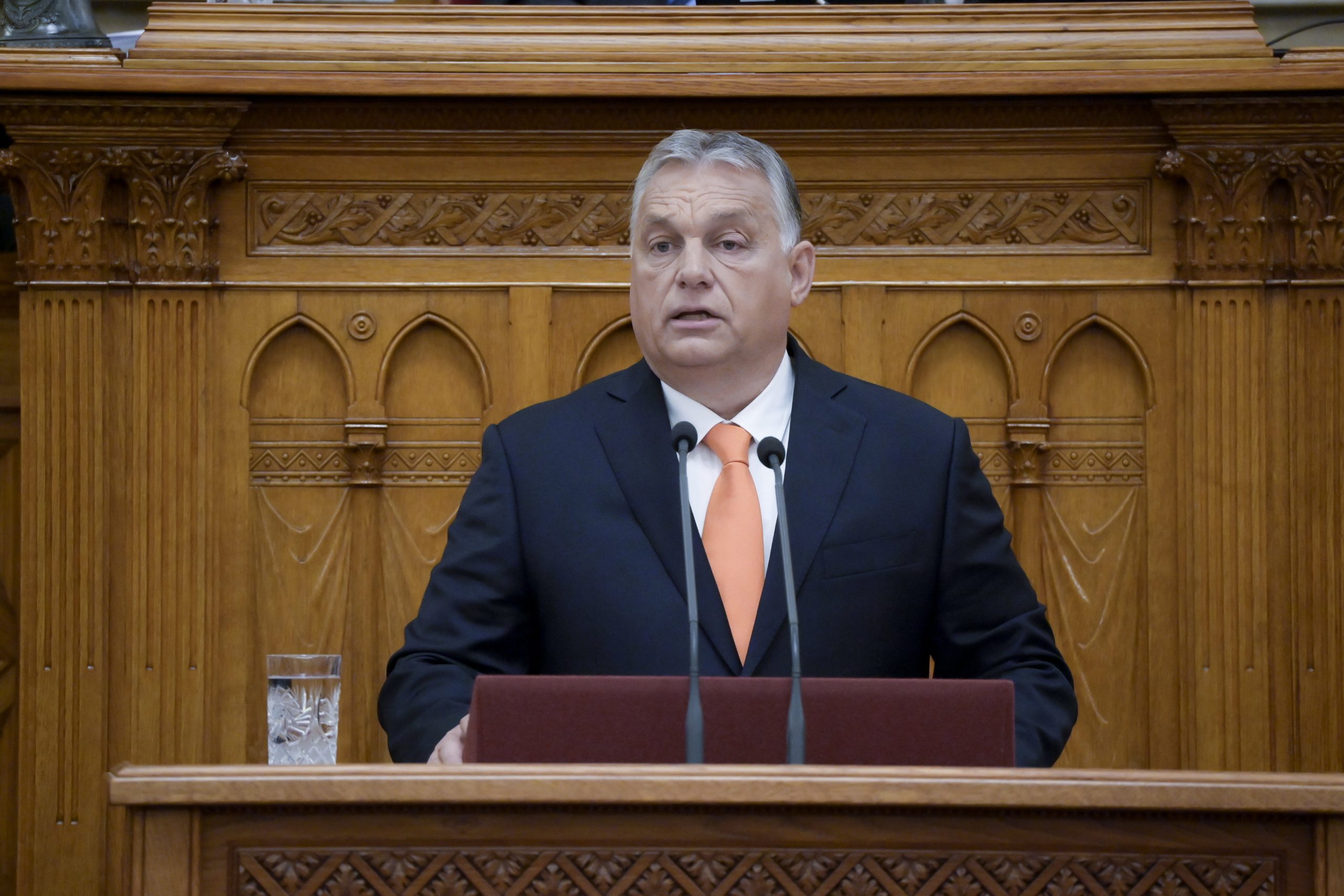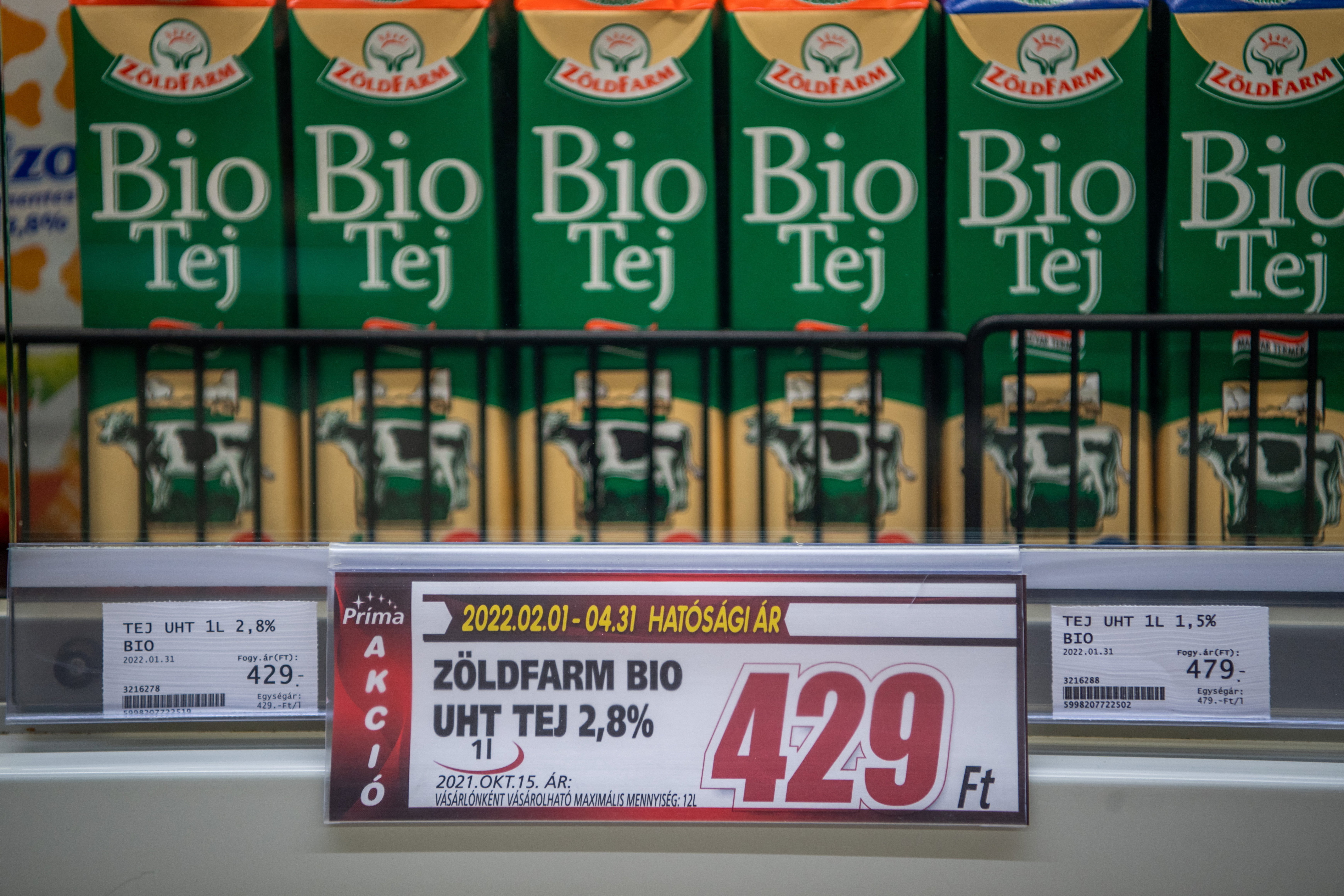
"Prices are going up across Europe primarily due to the war and will continue to rise until the war is over," Orbán said, adding that "Seeing this, we cannot sit idly in Hungary."Continue reading

As we have previously reported, Prime Minister Viktor Orbán announced the extension of the food and fuel price cap on Wednesday, which will be in effect until July 1. However, the decision is not without consequences, and its price will be paid, although in some cases not by the customers, or even by the customers themselves.
Head of the Prime Minister’s Office, Gergely Gulyás, said last week that the price freeze had worked because together with other similar measures such as the cuts in utility bills, it had reduced inflation by 4.4 percentage points, which he said would have been 13% without it. According to HVG, this is debatable.
According to Gulyás, the government is satisfied with the measure, but at the beginning of February, Prime Minister Viktor Orbán said that the price freeze should be lifted as soon as possible, except for the reduction in overheads.
The HUF 480/liter cap on petrol and diesel prices was introduced on November 15 and was set to expire on May 15.
Now, however, Orbán said in a Facebook video that the “prices are going up across Europe primarily due to the war [in Ukraine – editor] and will continue to rise until the war is over;” because of this “we cannot sit idly in Hungary. The government will do everything in its power to protect families from the consequences of increasing prices,” he said. “We had to make a decision today. So, we decided to extend our price cap measures until July 1 in both the fuel and basic foods category.”
While it is obviously a relief for buyers to pay lower prices, both the food price cap and the fuel cap caused some problems. Smaller, less capital-intensive shops soon realized that they could buy cheaper than the big retailers in other shops, so the latter mostly decided to introduce quantity restrictions and sell only a limited quantity per customer. In addition, while edible oils and flour were almost always available, chicken breast and pork legs were often absent from the supply, and it was also observed that large quantities of 2.8% milk were being bought for the frozen price instead of the previously popular 1.5% milk.
In addition, the prices of foods that were not regulated have increased in many cases. HVG360 reports that according to industry players, the price of groceries could rise by up to 20-30 percent now. This may be the minimum for producers, but the question is how much of this will reach consumers.
We have written several times about the increasingly difficult situation of petrol stations due to the price cap. Now, the president of the Independent Petrol Stations Association (FBSZ), Gábor Egri, reacted to ATV News about the extension of the petrol price stop. Egri believes that if there is no support, 99 percent of petrol stations will close by June 1. He also said that those who had applied by May 31 would be eligible for aid because of the price freeze, but not from June 1. He called the decision unsustainable and nonsensical, and said that the only option left for small petrol stations was to close down in order to reduce losses, 24.hu reports. Egri also said that the fuel price cap should be made into social support. Gergely Gulyás said, however, at the latest government press briefing, that this is not something that the government would consider, adding that it is “absurd, the proposal is unworkable in practice.”
Forbes writes that if the wells continue to receive the subsidy of 20 forints per liter, they can continue to pay their workers’ wages and cover most of their overheads. But as they eat into their reserves trying to cut costs, their situation remains critical. Eszter Bujdos, Managing Director of Holtankoljak.hu, said that a 20 forint subsidy is effectively 16 forints, because the introduction of market-priced gas oil on the market has increased the transport costs of petrol stations, so they themselves receive fuel from transport companies much more expensively than before the introduction of market-priced gas oil. Gulyás said at the press briefing that the 20 forint support cannot be raised.
Everything goes on as before. There is a market sector, with both the retail and the wholesale arm of the market, which the state expects to finance the price freeze. Obviously, the state is also providing funding through excise duty reductions and the waiving of membership fees for the Hungarian Hydrocarbon Stockpiling Association (MSZKSZ), but in terms of proportions, it is the smaller part,”
Bujdos explained.
Bujdos also added that “In the case of wells, we are talking about investments between 10 and 100 million euros. Obviously, nobody gives up on these because they are temporarily unprofitable or even unprofitable. That said, it’s not certain that everyone will pull through to the end.”
Since the price cap, there have been previous instances of petrol unavailable at certain petrol stations. This scenario is not excluded now either. According to Forbes, supply problems can be expected locally, as wells receive limited supplies from wholesalers and may therefore face stock shortages. The situation is generated by the fact that wholesalers are still not re-entering the market at such a loss – only MOL currently supplies fuel to independent wells. However, as long as these players are not present in the market, MOL will not be able to supply the petrol stations at the pace and speed that is needed. The stations submit their weekly demand, 66 percent of which is confirmed by MOL.
Fortunately, we have a regional multi-company, MOL, so the country is able to do it [maintain the price cap]. If we couldn’t provide enough gas oil and petrol at wholesale prices, of course we wouldn’t be able to do it, but we can.”
said Gulyás.
However, the CEO of MOL, Zsolt Hernádi, does not seem to think that this will last. He said that the fuel price freeze cannot be maintained for long because resources will run out. As he said, high energy prices will remain in 2022, and regulating prices by the authorities is not the solution. In the medium term, these transitional measures should be phased out and market standards should be returned, Hernádi said. If this does not happen, there could be a shortage of goods and possibly social tensions, he added.
Portfolio estimates that if the price freeze had been lifted, the market price of the products subject to the price freeze would have developed as follows (using average prices from the Hungarian Central Statistical Office):
According to the latest information from Holtankoljak.hu:
Featured image by Zoltán Balogh/MTI